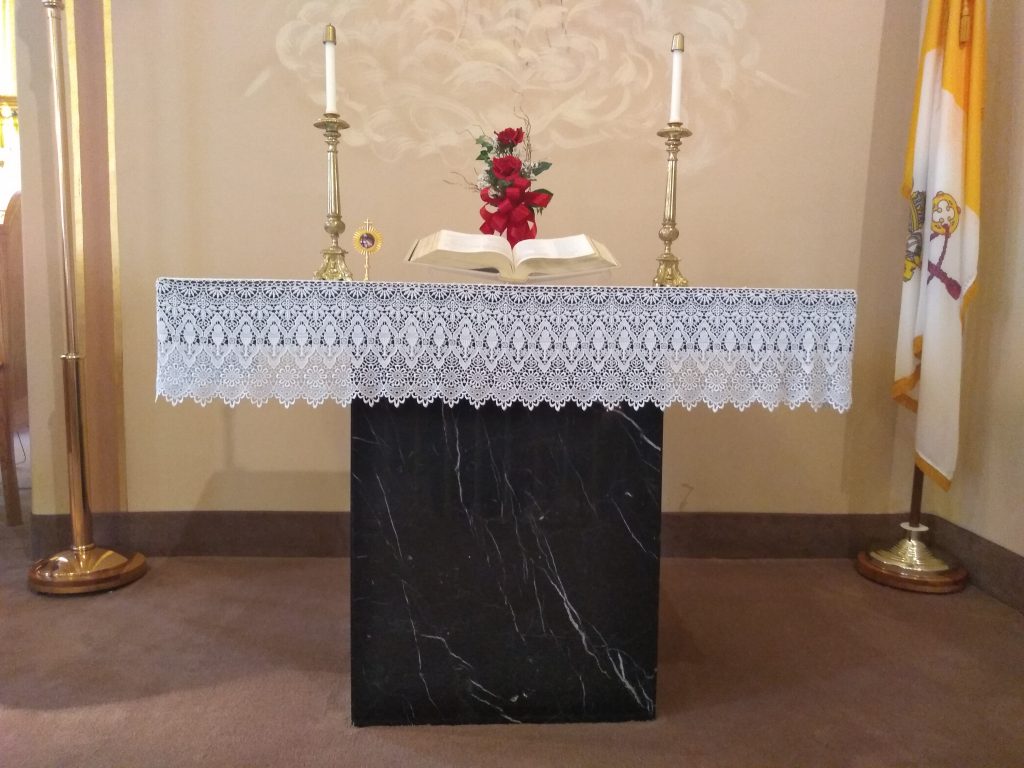Paul continues his boasting, but again, not as what would be presumed by a worldly point of view. He boasts of another person who receives many great graces (v2). Many have come to believe this person was John the Apostle, the beloved apostle. This person received some prophecies that were not to be spoken of (4). Paul would rather truly boast of the goodness of others than for himself (5). Paul is ever aware of his own unworthiness of God’s calling. But it is exactly through his unworthiness and weaknesses that God proves Himself.
God wants to keep working through Him as such a powerful witness of God’s goodness, that He sees to it that Paul remains humble (7). God sends Paul some suffering so that he may remain humble. Paul accepts this suffering as a good. He fully embraces this suffering. This does not mean that that he enjoys it. He asks God that it would be taken away (8). Yet God chooses to say no to this request (9). It becomes a teaching moment. Paul discovers that his weakness is the reason for God’s work in him. For this viewpoint, Paul does not have to be ashamed of his weaknesses. His humility that God preserves in him allows Paul not to be ashamed. Paul wants to glorify God in whatever way he can. He is truly learning to love God by suffering so that God’s glory may be revealed (9). It is not about Paul; it is about God.
It is the devil that tries to shame us. When we lack humility, we become embarrassed about the things we do. He gets us to beat ourselves up. We assume God is angry with us, and so we blame God for our shame. But God offers mercy. God is not the reason for our shame. What causes our shame is our lack of faith in Him. Our shame weakens our faith and distances us from God. Doubts start to grow and many even blame God or the Church for the shame they feel. The father of lies begins to consume them. This is how the devil wants to control us. We become enslaved to him. But Paul refuses to be ashamed. Jesus has conquered sin and death. The devil hath no shame because he wants to do evil. Paul has no shame because Jesus has offered His love and Paul has chosen to love Him back. The weaknesses he suffers are found to be a way to love God back. These things that are considered to bring shame in this world are now ways for God to be glorified, and therefore a reason for Paul’s boasting. This is something that is a “stumbling block to the Jews and foolishness to the gentiles” (1 Cor 1:23) (also see v11).
Paul goes on to complain about the ingratitude of the people. He spends his life giving the grace of Jesus to them continually. He refuses to become a burden for them, but they will respond to those who make a great demand on them (11:20). God’s graces are a rich storehouse for his children, according to Paul (v14 & Mt 6:19-20). This is how Paul is supplying for his spiritual children that Jesus has given him.
Many children to this day rebel against their parents. Children blame their parents and judge them as they judge God Himself. Many people ignorant of God’s ways find that God is not to their liking. Neither are their actions to God’s liking (20). God always loves them and is not in need of their approval and neither is Paul (19). It is most unfortunate that so many people reject God, for they will not be in heaven. This is why Paul fears their sins so much. We worry so much about the approval of those who embrace the sinful way of life, those who could deem us in their graces while in this life. We want to make sure the life on this earth is taken care of. But we never think of the embarrassment of the sins we commit in the next life. Sin is not the norm in heaven. Those in hell will use it against each other who have been cast there. These sins that cause such shame are “discord, jealousy, outbursts of anger, selfish ambitions, slander and gossip, self-importance, disorder” (20). These are habits that never bring peace or make us glad for something we did. Oh how the devil enslaves us. Jesus, come and set us free!

